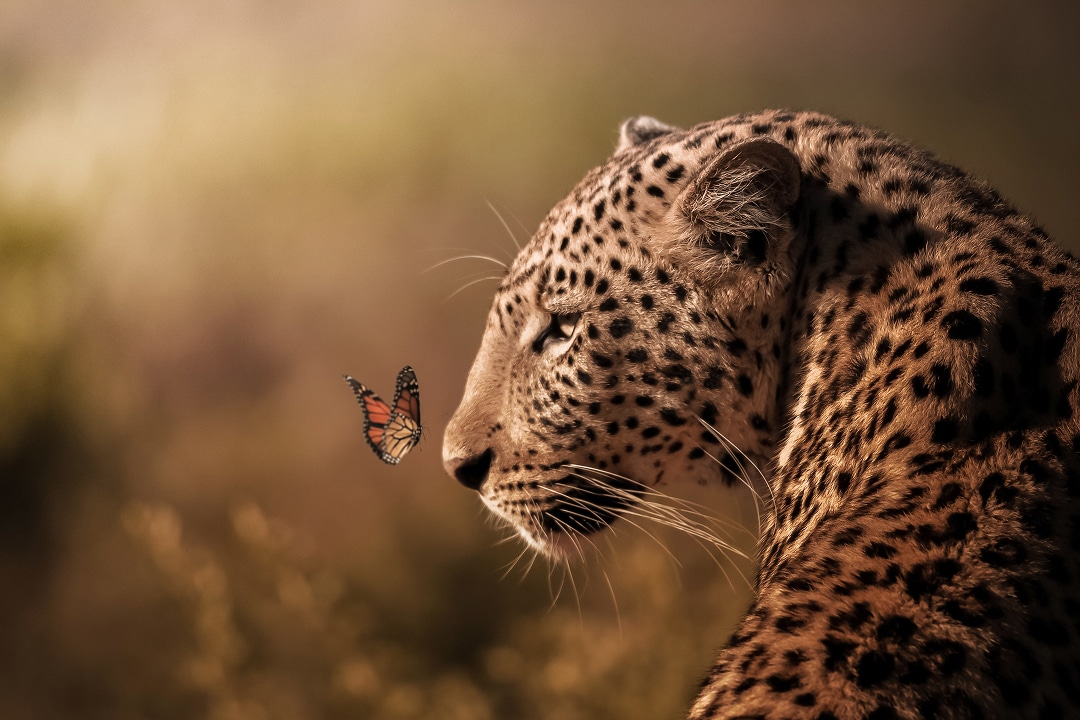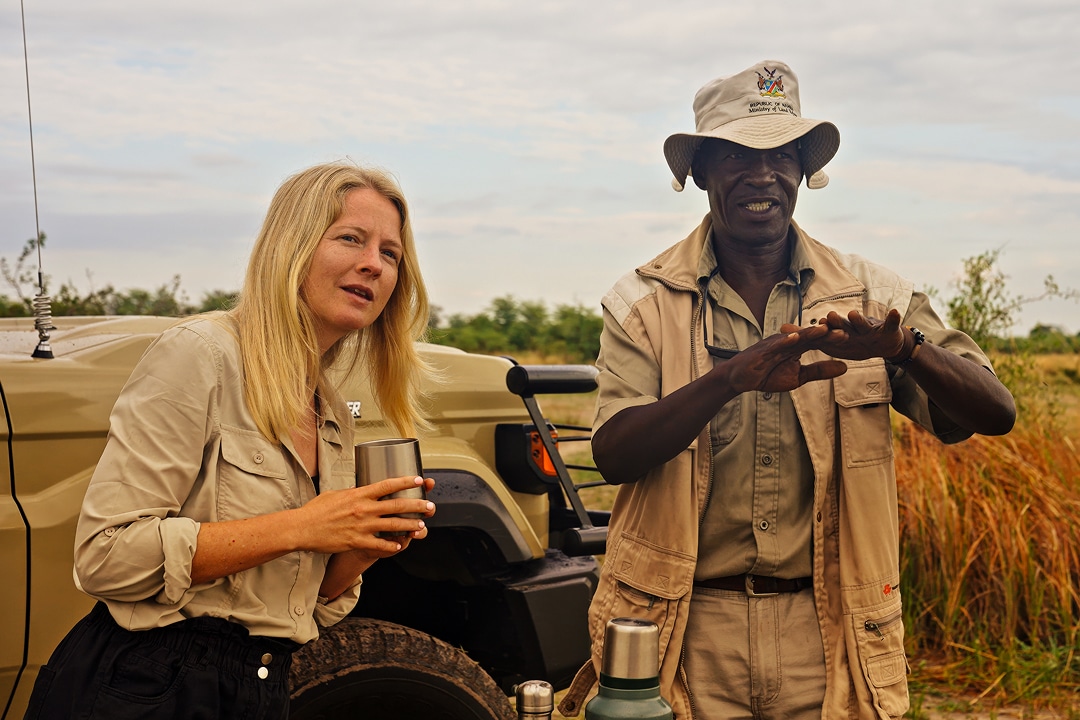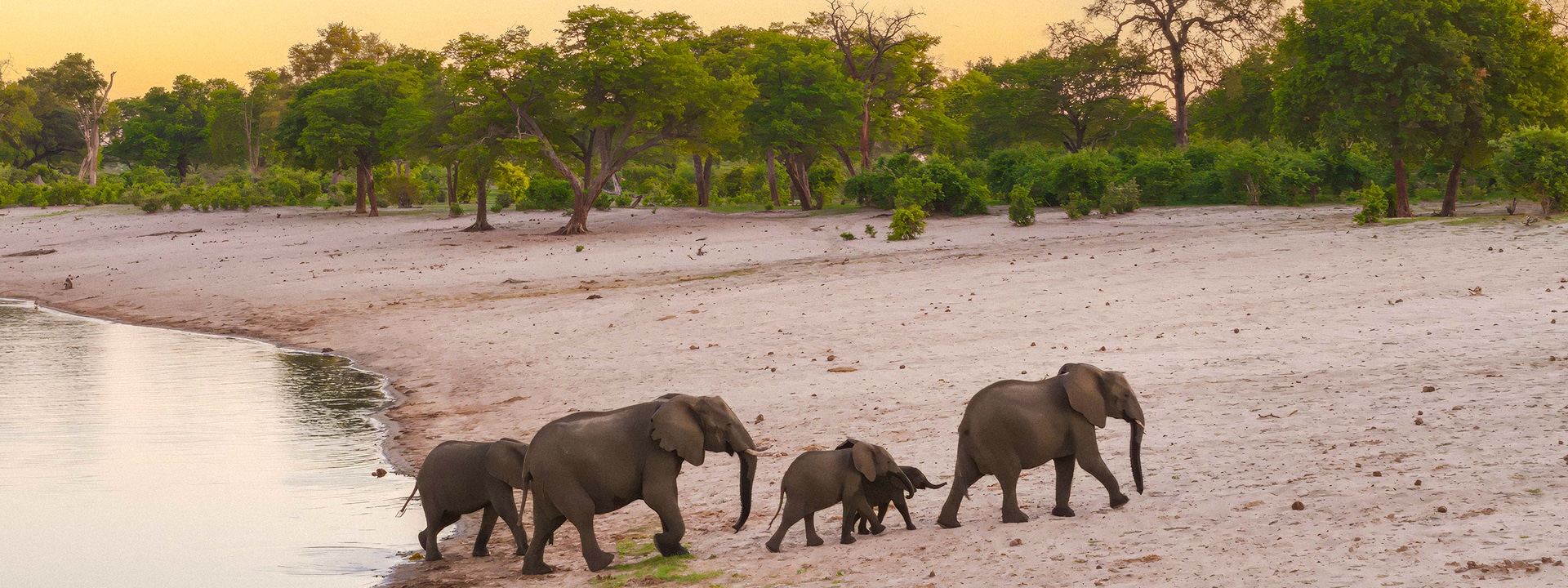Why the African Wild is the Most Honest Teacher
At African Monarch Lodges we are great believers in the butterfly effect – that something as small as a butterfly flapping its wings can unleash a ripple effect on its surroundings.
This is what the wild teaches when we listen. It shows us how interconnected every tiny thing on our planet is. That’s why we strive to open all of our safari guests’ eyes to the patient pleasures of wildlife watching and all the gifts that come with ecotourism.
Safari = watch, wait and wonder
This starts with fully embracing slow travel and being present in the moment – alert but patiently receptive to the tapestry of sights, sounds and textures surrounding you. Because the bush doesn’t lecture, it offers lessons to those still enough to notice. Often it’s when you’re sitting quietly on the deck that a small movement will catch your eye and you’ll realise that you’re not alone but are being observed by bright animal eyes.
The bush doesn’t lecture, it offers lessons to those still enough to notice.
Over time, these observations reveal changing patterns in the landscape and how the seasons are far more than the march of calendar months. In fact, both the Kavango Zambezi Transfrontier Conservation Area and African Monarch Lodges are built on just such an insight. Many animals migrate across vast areas when food and water become scarce during the dry season. Elephants are among them. Following in the footsteps of their ancestors, they can cover hundreds of kilometres and cross a number of national borders to reach lush vegetation along the rivers and in wetlands.
When Dusty was building the lodge, he already had the idea for the treehouse suites, but it took the passing of a large migrating herd directly below the tree he’d climbed for him to realise that these gentle giants should always have right of way below.
This is how wildlife teaches sustainable travel. Dusty would never have had his insight in an air-conditioned office. He had to be there, gripping the rough bark, listening to the sound of twigs snapping in the undergrowth below, seeing the sway of the great, creased grey bodies. That’s how the wild speaks to us: through the Morse code of heightened senses, humming nerves and clenched viscera. And it’s no different for other animals.
From rattling sabres to neighbours
We are fortunate at African Monarch to have resident leopards at both our lodges and over the years we’ve had more and more sightings of these shy, elusive hunters. That’s because they’ve gradually learned that they needn’t fear us. The leopards are a testament to what’s possible when conservation is not imposed but shared, and the rhythms of nature are safeguarded along with human needs.
So when you hear the female’s powerful, guttural rasps as she marks her territory at Nambwa, you’ll know that you’re part of a new understanding. It’s not us or them. It’s us and them. And that goes for the local communities bordering Bwabwata National Park, too. Villagers, rangers, guides and conservationists work together to protect what’s sacred. Joint ventures with lodges like Nambwa and Kazile offer livelihoods rooted in sustainable travel, preserving the ecosystems that sustain us all.
“When you hear the female leopard’s powerful, guttural rasps as she marks her territory, you’ll know that you’re part of a new understanding. It’s not us or them. It’s us and them.”

Lifetimes spent listening to the land
Those who have grown up with migratory herds passing their homesteads, walked to school under cathedral-like trees and woven mats from the river reeds are Nature’s stewards and storytellers. For them, the voice of the wild isn’t just a faint murmur, it’s constant chatter. They notice the change in rainfall patterns or when animals don’t return as expected. Anyone who has spent time with our guides falls in love with their authentic African safari stories.
Anyone can delight in the annual arrival of spring’s heralds, the southern carmine bee eaters. With their vibrant plumage and calls, they bring life to the faded winter landscape. But the guides see more. They don’t just interpret their chirruping but also read flight patterns and observe behaviour, which are all clues to the birds’ state, the health of the ecosystem as well as the truth of seasonal change.
“Guides don’t just interpret birds’ chirruping but also read flight patterns and observe behaviour, which are all clues to the birds’ state, the health of the ecosystem as well as the truth of seasonal change.”

It’s only through paying such close attention that we become aware of how we unknowingly damage delicate natural systems. It might surprise you that cell phone signals are detrimental to wildlife. These forms of electromagnetic radiation can interfere with their behaviour, ability to navigate and reproduce. This is why we only offer connectivity in our suites and reception area – and our guides request guests to put their phones on “elephant mode” when enjoying outdoor activities (still allowing photos).
Just as our commitment to sustainable tourism means that we use solar energy, recycle at the Sijwa Project, and don’t put up fences that could cut off wildlife corridors, we think sacrificing signal is worth it. And without digital distractions, we hope that you’ll be more present in the here and now, and open to the whisper of the wild that you, too, are part of all this.
Ready for your first day at school in a classroom under the sky?
For the attentive student, the lessons from an African safari in Namibia offer many rewards, such as a sense of grounding in embodied knowledge and connection to the ancestral rhythms of the seasons. In fact, many guests come to visit and find a sense of belonging.


